Getting To The "Root" of Bad Breath In Dogs And Cats
 By Donna Spector - HaloPets: Periodontal disease is one of the most common and serious pet health problems, affecting approximately 80% of dogs and 70% of cats by age 3. At-home prevention is as important as regular teeth cleaning by veterinarians. In fact, unless pet owners provide teeth cleaning for dogs and cats at home, periodontal disease will progress regardless of the care provided by veterinarians. Periodontal disease often results in tooth and gum infections, pain, loss of teeth and even organ damage in pets. Studies have shown that dogs with severe periodontal disease have more damage in their kidneys, heart muscle and liver than dogs without periodontal disease. This organ damage occurs when bacteria from the infected tooth roots and gums gain access to the blood stream (a condition called bacteremia). The key to management of gum disease (for humans or pets!) is prevention. As long as the surfaces of the teeth are cleaned frequently, the gums will stay healthy
By Donna Spector - HaloPets: Periodontal disease is one of the most common and serious pet health problems, affecting approximately 80% of dogs and 70% of cats by age 3. At-home prevention is as important as regular teeth cleaning by veterinarians. In fact, unless pet owners provide teeth cleaning for dogs and cats at home, periodontal disease will progress regardless of the care provided by veterinarians. Periodontal disease often results in tooth and gum infections, pain, loss of teeth and even organ damage in pets. Studies have shown that dogs with severe periodontal disease have more damage in their kidneys, heart muscle and liver than dogs without periodontal disease. This organ damage occurs when bacteria from the infected tooth roots and gums gain access to the blood stream (a condition called bacteremia). The key to management of gum disease (for humans or pets!) is prevention. As long as the surfaces of the teeth are cleaned frequently, the gums will stay healthy
Some dogs are more susceptible than others to build up of plaque. Factors that affect the risk of a dog getting periodontal disease include
- Breed and genetics
- Dog size
- Flattened face (brachycephalic)
- Age
- Frequent mouth breathing

Breed, genetic and tooth alignment can all affect how easily a dog gets plaque.
Small breeds tend to have crowded teeth and are at a higher risk of building up plaque and having dental problems.
Dogs with flattened faces having compressed upper jaws (such as pugs, boxers, etc.) also tend to have crowded teeth.
Older dogs are more likely to have dental problems.
When a dog breathes frequently through its mouth the drying of the teeth tends to harden plaque.
 *Example: Chihuahuas are very lucky in that the fact that this breed has few health problems overall… but teeth issues is periodontal disease is one! There is an old joke…”What do you call a room full of Chihuahuas?”… “One full set of teeth.”
*Example: Chihuahuas are very lucky in that the fact that this breed has few health problems overall… but teeth issues is periodontal disease is one! There is an old joke…”What do you call a room full of Chihuahuas?”… “One full set of teeth.” ![]()
Brushing your pets’ teeth at home
 The gold standard for keeping gums healthy and plaque controlled in pets is twice daily tooth brushing. Each pet should have their own toothbrush and proper pet toothbrushes should have bristles to reach under the gum line. There are numerous cat and dog toothbrush sizes available to best fit your pets’ mouth. Human toothpaste contains detergents and should not be used in pets as they will swallow the paste. There are many cat and dog toothpaste flavors available and most pets seem to prefer the poultry-flavored types.
The gold standard for keeping gums healthy and plaque controlled in pets is twice daily tooth brushing. Each pet should have their own toothbrush and proper pet toothbrushes should have bristles to reach under the gum line. There are numerous cat and dog toothbrush sizes available to best fit your pets’ mouth. Human toothpaste contains detergents and should not be used in pets as they will swallow the paste. There are many cat and dog toothpaste flavors available and most pets seem to prefer the poultry-flavored types.
Proper brushing technique involves placing the toothbrush bristles at a 45 degree angle where the gum and teeth meet. Using a gentle oval pattern and covering three to four teeth at a time, the bristles should be moved around the teeth. Ten short oval motions should be completed before moving the toothbrush to a new location in the mouth. The outside upper teeth do the most chewing and should get more attention.
For best results, tooth-brushing should start when pets are young and will easily adjust to teeth cleaning at home. As pets age and develop tooth and gum disease, there may be pain associated with brushing and pets may be less willing to allow brushing. If your pet is completely unwilling to allow brushing, there are dental wipes that can help control plaque when rubbed twice daily against the teeth and gums.
Veterinary teeth cleaning
 In addition to daily tooth brushing, pets will intermittently require dental cleanings by their veterinarian to prevent periodontal disease from occurring. Veterinarians often perform fluoride treatments or apply plaque prevention gels that have a long-lasting plaque-fighting advantage. The frequency of these cleanings will depend on the success of the at-home dental care. They may be as frequent as every four to six months in a pet with severe periodontal disease or only every two to three years if a pet owner has been dedicated to maintaining their pets’ dental health at home.
In addition to daily tooth brushing, pets will intermittently require dental cleanings by their veterinarian to prevent periodontal disease from occurring. Veterinarians often perform fluoride treatments or apply plaque prevention gels that have a long-lasting plaque-fighting advantage. The frequency of these cleanings will depend on the success of the at-home dental care. They may be as frequent as every four to six months in a pet with severe periodontal disease or only every two to three years if a pet owner has been dedicated to maintaining their pets’ dental health at home.
Frequently asked questions:
-
Is anesthesia always required for teeth cleaning?
Yes, anesthesia is required for a thorough teeth cleaning that will help prevent periodontal disease. As pet owners are often reluctant about procedures requiring anesthesia for their pet, some groomers and veterinarians are offering "anesthesia-free" dental cleanings. Anesthesia-free cleanings are not recommended by the American Veterinary Dental College, as these procedures always result in suboptimal examination and cleaning and also increase the risk of injury to the pet’s mouth.
-
Is dry food better for pets’ teeth?
No. It is a myth that dry kibble helps remove plaque and that canned foods cause more plaque. Most dry food crumbles without much resistance, offering little to no abrasive action from chewing. Pets eating dry foods can (and do) develop heavy plaque buildup.
-
Does my pet need a special dental diet?
Probably not. If your pet has particularly bad plaque problems, despite proper at-home teeth brushing and veterinary dental care, you should talk to your veterinarian about an appropriate dental diet. Approved dental diets contain chemicals that bind and facilitate breakdown of plaque. There is a list of approved foods and dental treats published by the Veterinary Oral Health Council (VOHC).
Digestive problems can also contribute to bad breath in dogs and cats. If you haven’t already, consider switching to a natural pet food which promotes excellent gastrointestinal health.
-
Are there treats that can help reduce plaque buildup?
Yes. There are many treat products on the market that claim efficacy against plaque and tartar. The VOHC Seal of Acceptance can help pet owners distinguish which products are actually scientifically proven to reduce plaque and tartar buildup.
Bad breath is just a minor symptom of the more severe periodontal disease occurring in your pet’s mouth. Work with your veterinarian to create a cat or dog dental care plan that will keep the bad breath away and maintain your pets’ health for years to come.
Donna Spector, DVM, DACVIM ,is a renowned, board-certified Veterinary Internal Medicine Specialist who has practiced at the Animal Medical Center in New York City and other leading institutions. She is an active member of the American Veterinary Medical Association (AVMA) and the American Holistic Veterinary Medical Association. Dr. Donna has written and lectured extensively on topics including nutrition, diabetes, gastrointestinal disorders, kidney failure and respiratory disease. She is widely recognized for her role as consulting veterinarian to HALO, Purely for Pets, her TV appearances with Ellen DeGeneres and her widely-quoted pet health advice in print and on radio. Dr. Donna performs medical, nutrition and weight loss consultations for dogs and cats through her web-based veterinary consulting service, www.SpectorDVM.com.
Here we have two laughing Chiweenie Sisters, Angelina and Princess, laughing as they wait for their Halloween Photos (2008)
September 19, 2013 Posted by justonemorepet | Animal Related Education, Chihuahua, Chiweenie, Dogs, Dogs, Holistic Pet Health, Just One More Pet, Pets, responsible pet ownership | bad breath in cats, bad breath in dogs, Bad Breath in Pets, brachycephalic, Brushing Pet's Teeth, cats and dogs, Chihuahuas, Chiweenies, Dog Dental Disease, Dog Smiles, dogs and cats, Dr. Spector, holistic veterinarians, Pet Periodontal Disease, Veterinary teeth cleaning | 3 Comments
Frenchie Dad Plays with His Pups
Video: Frenchie Dad Plays with His Pups
So cute!! This reminds me so much of our Apachi playing with his pups after they were weaned. Mama Angel was the best Mommy and Apachi watched over them dutifully, but from a distance, until they were weaned and then he took over.
Grandpa Tim With Tired Daddy Apachi; 7-Week Old Pups (In Semi-Circle Front to Back) Princess, Goji, Angelina and Magnum After Too Much Playing; and Mama Angel in the Foreground.
April 28, 2013 Posted by justonemorepet | Animal and Pet Photos, Chihuahua, Chiweenie, Dogs, Dogs, Just One More Pet, pet fun, Pets | Angel, Angelina, Apachi, Chihuahuas, Chiweenies, French Bull dog, Frenchi, Goji, Magnum, Princessa | 1 Comment
Marion’s Pet Sitting Services – Best in Temecula CA
Marion’s Pet Sitting and Dog Walkers are Your pets‘ best friend when work, play or other events force you to be absent from your precious loved ones. Whether you select a package or ala carte services, our numerous options we will ensure your pets get the care they deserve. A friend that your pet can count on:
- Trusted caretakers who are professional and reliable, all with available references and background checks.
- Communication is provided by daily diaries, text messaging, email and twitter updates.
- We provide peace of mind, knowing that your furry little ones are in a safe, homey environment and that they are loved.
Marion’s Pet Sitting and Dog Walkers has built our reputation one client and one pet at a time first in Southern California then in North Austin, Texas and now back in SoCal (Temecula and surrounding areas): one pet and animal event at a time, and one blog post at a time here at Just One More Pet. We are animal lovers and will treat your pets like family.
Check out our services, testimonials and services at: http://www.marionspetsitting.com/
By Gina and Paul S. – May 10, 2010 (Corona, CA)
Our boys (Lhasas), Snoop and Gizzie, as well as our son, have always loved Marion and were so excited to see her back. She was great with them from when they were puppies and they were always better behaved with Marion than with us. We are so excited that she is back and now that we have moved to Corona, she is closer to pet (and maybe baby) sit for vacations and special occasionsIf you need a sitter or are close enough to use her service as a walker, you couldn’t ask for a better walker, dog or house sitter!!
Jan 11, 2013 – Welcome home Marion… We missed you! We will be calling you soon!!
Marion’s Pet Sitting and Dog Walkers also offers pet products that we use ourselves for our own pets to keep them healthy and fit. You will love them.
- View All
- StemEquine Advanced Formula
- StemEquine Single USA
- StemPets Advanced Formula
- StemPets: For Dogs Single
StemPets® is a natural stem cell enhancer for dogs and other house pets. It is the specially formulated pet equivalent of our patented stem cell enhancer (AFA Concentrate) for humans, documented to support the natural release of adult stem cells from bone marrow. Also see StemEquine.
“Within two weeks of using StemPets my German Shepherd’s hips were not as stiff and she started running like a puppy.” – Jan A., IN
Our little Chiweenie suffers from pancreatitis and whenever she has a flare-up, a double dose of StemPets: For Dogs Single helps her get back to her normal self better than anything we have found, prescription or natural. – Marion A., TX
In a clinical study, AFA Concentrate naturally increased the number of circulating stem cells in the body.
Available in tasty chewable tablets, this high-quality nutritional supplement has been designed to meet the needs of dogs and other house pets.
Also see StemEquine®, an all-natural stem cell enhancer for horses. The supplement is the specially formulated equine equivalent of our patented stem cell enhancer (AFA Concentrate) for humans, documented to support the natural release of adult stem cells from bone marrow.
A clinical study revealed that this extraordinary supplement increased the number of circulating adult stem cells by approximately 3-4 million. Simply add StemEquine granules to your horses feed.
Natural Renewal StemPets supports the natural release of adult stem cells from your pet’s bone marrow. Adult stem cells play a key role in the natural renewal process. Their primary role is to maintain and repair tissue. Scientific studies have shown that increasing the number of circulating adult stem cells in the body is an important aspect of maintaining optimal health.
Service Areas
- Temecula CA and surrounding areas
Contact Us At:
Marion’s Pet Sitting: 41911 Avenida Vista Ladera, Temecula, CA 92591-5336
Ph: 512.810.7888 or 7881 - Email: JustOneMorePet@gmail.com
January 24, 2013 Posted by justonemorepet | Animal or Pet Related Stories, animals, Chihuahua, Chiweenie, Dogs, Dogs, If Animlas Could Talk..., Just One More Pet, Man's Best Friend, Pet Friendship and Love, Pet Health, Pet Nutrition, Pets, responsible pet ownership | Angelina, Chihuahuas, Chiweenies, dog sitter, dog walker, dogs, dogs and cats, Lhasas, Marion's Pet Sitting, natural stem cell enhancer for horses, Pancreatitis in Dogs, pet longevity, pet sitter, pet stem cell enhancer, pet walker, Pets, responsible pet ownership, StemPets, StemTech. StemEquine, Temecula CA pet sitter, Temecula CA pet walker | Leave a comment
Is Your Short-Muzzled Dog Having Breathing Problems?
Story at-a-glance
 A recent study conducted in the UK revealed owners of brachycephalic breeds (dogs with short muzzles) often don’t realize their pet is struggling to breathe.
A recent study conducted in the UK revealed owners of brachycephalic breeds (dogs with short muzzles) often don’t realize their pet is struggling to breathe.- A problem common in these dogs is brachycephalic airway syndrome, which includes a number of upper respiratory problems affecting the nose, mouth and/or throat of pets with “pushed in” faces.
- “Brachys” have constricted upper jaws, which causes the soft tissue to be crammed within the skull. Symptoms of brachycephalic airway syndrome include noisy or labored breathing, gagging, choking, problems breathing during physical exertion, and overheating.
- Breathing problems can prevent your dog from enjoying the simplest things in life, like eating, sleeping, play and exercise. In dogs with severe airway obstruction, the struggle to breathe can be continuous. Left untreated, the situation gets progressively worse, as do the symptoms.
- It’s important for owners of brachycephalic breeds to understand the difference between normal and abnormal breathing sounds in their dog, and to see the vet if they notice any unusual breathing or other signs of respiratory distress.
By Dr. Becker
A recent study points to the possibility that owners of brachycephalic breeds (dogs with “pushed in” faces) mistake significant breathing difficulties in their pets for normal respiratory sounds.
The Royal Veterinary College at the University of London conducted a survey of the owners of 285 dogs who brought their pets to the Queen Mother Hospital for Animals for various reasons during a five-month period.
Thirty-one of the 285 dogs, including Boston terriers, bulldogs, Cavalier King Charles spaniels, French bulldogs, Pekingese and pugs, had been diagnosed with brachycephalic airway syndrome.
Brachycephalic airway syndrome describes a number of upper respiratory problems affecting the nose, mouth and throat of dogs (and some cats) as a result of abnormal skull structure.
What surprised the Royal Veterinary College researchers was the fact that despite the dogs’ owners reporting significant respiratory symptoms, they did not believe their pets had breathing problems.
Breathing Difficulties Assumed to Be Normal
Short-muzzled dogs, or “brachys,” have constricted upper jaws, which causes the soft tissue to be compressed within the skull. Many of these dogs develop brachycephalic airway syndrome. Signs of the condition include noisy or labored breathing, gagging, choking, problems breathing with even minor physical exertion, and a tendency to overheat.
Every owner of a brachy said their dog snored – some even while awake – compared with fewer than two percent of non-brachycephalic dogs. But well over half the owners did not believe their pet had breathing difficulties, even though the majority of dogs had problems during exercise.
According to researchers, this indicates many owners of pets with brachycephalic airway syndrome don’t realize a problem exists and don’t seek help from a veterinarian. According to Rowena Packer of the Royal Veterinary College and one of the study researchers:
"Our study clearly shows that owners of brachycephalic dogs often dismiss the signs of this potentially severe breathing disorder as normal and are prepared to tolerate a high degree of respiratory compromise in their pets before seeking help. It may require a particularly acute attack, such as the dog losing consciousness, for owners to perceive a problem."
Many owners who were surveyed seemed to believe breathing difficulties aren’t really a problem if the dog is short-muzzled. One owner’s comment: “No to breathing problem – other than being a Bulldog.”
Dr. Charlotte Burn, lead researcher, warns that while short muzzles may be appealing-looking, owners of brachy breeds need to be aware the cute appearance often comes at a serious price to the dog. “Just because a problem is common, that doesn’t make it less of a problem for the individuals who suffer it,” says Burn.
Helping Your Brachy Breathe Better
Breathing difficulties can prevent your pet from being able to enjoy the very simplest things dogs naturally love to do, like eating, sleeping, play and exercise.
Dogs with severe brachycephalic airway syndrome can have almost continuous difficulty getting enough air. It’s not unusual for these dogs to collapse from lack of oxygen.
Left untreated, the problems tend to progress over time, with worsening symptoms.
The Royal Veterinary College researchers encourage parents of brachycephalic breeds to learn the difference between normal and abnormal breathing sounds in their dogs, and to make an appointment with a vet if they notice any unusual breathing or other signs of respiratory distress.
Unfortunately, surgery is often the only option to resolve significant breathing difficulties resulting from brachycephalic airway syndrome. The treatment goal is to surgically remove the tissues or structures causing airway obstruction.
Things you can do as the owner of a brachy include keeping your dog fit and trim. Overweight and obese dogs have much more serious respiratory difficulties than pets who are kept at an ideal weight.
Keeping your dog out of hot, humid environments is also important to support normal respiration and prevent overheating.
And since stress exacerbates virtually every health problem, especially breathing difficulties, keeping your dog’s life as stress-free as possible is also recommended to support your pet’s health and quality of life.
Related:
Reverse Sneezing, Chihuahua Honks or Mechanosensitive Aspiration Reflex
Collar to Keep Track of Dogs’ Temperature is in the Works
K-9 dies after being left in hot patrol car
See: Temperatures Are Rising: Be a Dog Defender: Help Save Animals This Summer! Cool Ideas for Hot Dogs – Please be proactive and vocal… you could be saving a life and definitely saving animals of a lot of suffering!!
August 24, 2012 Posted by justonemorepet | Animal or Pet Related Stories, Chiweenie, Dogs, Dogs, If Animlas Could Talk..., Just One More Pet, Pet Friendship and Love, Pet Health, responsible pet ownership | abnormal breathing sounds in dogs, Boston terriers, brachycephalic airway syndrome, Brachycephalic animals, brachycephalic dogs, brachys, bulldogs, Cavalier King Charles spaniels, Chihuahuas, dog health, French bulldogs, mechanosensitive aspiration reflex, overweight dogs, Pekingese, pet weight control, prevent dog over-heating, prevent pet over-heating, Pugs, reverse sneezing in dogs, short-muzzled dogs, small dogs | 1 Comment
‘Until One Has Loved an Animal, Part of Their Soul Remains Unawakened’
Our pups are now 3,4 and 6-years old… Yes 4, pretty amazing for people who never had or really wanted pets. I always liked animals, but really didn’t want one of my own. Perhaps I just realized that I wasn’t in a place or ready to take care of them yet and my husband was allergic to everything with fur and feathers. So when our daughter was young we gave in starting with hamsters, mice, rats, geckos, lizards, fish, turtles… and then birds. Then our daughter came home with a dog while she was working part-time at a pet store, the summer after her first year of college. She was supposed to be earning a little pocket money for the next year. Instead she pretty much spent all she earned and came home with a papered Chihuahua… who became our Angel.
Baby Angel
My husband said, “no way!” Our daughter was going back to the dorms and he was allergic, so took Angel right back to the store. They wouldn’t take her back because our daughter had signed the contract and they had given up a full paid sale to let her buy Angel at the employee discount, less than half of what they had had an actual customer for. And of course, our daughter went back to school and the dorms, with Angel in tow insisting she could sneak her in and keep her there. Less than an hour after her arrival at school with her 4-legged roommate, we were on our way to pick Angel up. My husband went through 18-months of allergy shots after that so we could keep her.
A year later our daughter was off sailing around the world with Semester at Sea. When she got back mid-year, she was assigned a lulu bell for a roommate and bargained with us to get an off-campus apartment a semester early. She wasn’t there a month… when she brought home a Chiweenie puppy, Apachi, who was being given away outside the pet store, near school, where she had just gotten a part-time job after returning from her sail. A pet store job is never a good idea for her. Major Problem… it was a no pet apartment and we had signed a year’s lease.
Baby Apachi
Not long after getting Apachi, our daughter’s colitis flared up to an extreme level (I tend to think some vaccines that they got overseas might have exacerbated her condition adding to some stress in her life at the time and too much drinking and partying during that period and trip). After a week at an alternative care facility in an attempt to avoid radical surgery, she unfortunately ended up having to have 2 major surgeries and I spent a total of 54-days (24/7) in the hospital sleeping on a cot in her room, with her. My husband was home with Angel and Apachi and visited daily. With all that was going on we really didn’t think about the fact that neither 6 month old Apachi nor Angel had been fixed. Angel is a half long-hair half short-hair fawn face Chihuahua with a really easy going disposition and everyone had said, if we could breed her with a like-type male, they’d love to have a puppy, so I was looking for a mate for her and Apachi was just a baby and taking him in just got lost in all the goings on.
Next thing we knew… we had 4 puppies: Angelina, Magnum, Princess and Goji
Angel was a natural and great Mom and Apachi watched over them from somewhat of a distance… until they were weaned, at which point he took over.
The boys (Magnum and Goji) and Angelina went to new homes at 10-weeks of age and we decided to keep Princess. Then a few weeks later Angelina came back to us, because her new family couldn’t keep her and we had requested that if anyone who took a puppy had problems that we would get the puppy back. Long story short… we kept her too and that is how we went from birds, turtles and rats, at the time, to 4-dogs and a fish who survived being fed to our turtles.
Goji and Magnum
Princess and Angelina
We have been very blessed to have found homes for Magnum and Goji with wonderful families who keep in touch and let us know how the boys are doing at least a couple times a year…
Goji and Magnum above… Angelina and Princess below at age 2
Usually at the holidays or the pups’ birthday
Our 4 Sing Happy Birthday
The puppies were about 6-months old here
And this is them now… Angel 6, Apachi 4 and the pups 3
It has been an amazing experience to watch this little family grow and interact. An experience that most people and even animals don’t get to have unless you live in the country. People ask, “Wow, aren’t they a lot of work?”. I can honestly say that the joy so out-weighs any work, that I never even notice… and I cook for our four for all their meals.
As for our daughter… she went on to get more furkids…
Precious (a Pomeranian), Merlin (a Papillion) and Annabelle (a Chorkie)
By Marion Algier/Ask Marion – Just One More Pet
Photos by the UCLA Shutterbug
August 3, 2010 Posted by justonemorepet | Adopt Just One More Pet, Animal and Pet Photos, Animal or Pet Related Stories, animals, Change Number of Pet Restrictive Laws. Ordinances and Rules, Fostering and Rescue, Just One More Pet, On The Lighter Side, Pet Blog, Pets, Success Stories, We Are All God's Creatures | Angel, Annabelle, Apachi, awakening your soul, Chihuahuas, Chiweenies, Chorkie, dog breeding, dog families, dogs, family of dogs, for the love of a dog, for the love of a pet, furkids, Goji, Magnum, man's best friend, man's best friends, Merlin, natural pet reproduction, Papillion, pets awaken a part of your soul, Pomeranian, Precious, Puppies, pups | 51 Comments
Death Row Pet Listings (03.12.10)
Camarillo Shelter, CA
A487560
Breed: Chihuahua
Age: Adult
Gender: Male
Size: Small
SANDRA – ID#A1237488 My name is SANDRA.
I am a female, tan and white Chihuahua – Smooth Coated.
The shelter staff think I am about 5 years old.
I have been at the shelter since Mar 09, 2010
Please share, thanks!!
PetHarbor.com: Animal Shelter adopt a pet; dogs, cats, puppies, kittens! Humane Society, SPCA. Lost.
March 12, 2010 Posted by justonemorepet | Adopt Just One More Pet, Animal Rescues, animals, Animals Out of Time - To Be Euthanized, Fostering and Rescue, Just One More Pet, Pet Adoption, Pet Friendship and Love, Pets, Stop Euthenization | Chihuahuas, doggie death row, dogs, pet death row | Leave a comment
Banfield: 10 Dog Breeds Affected By Periodontal Disease
To coincide with February’s Pet Dental Month, new findings have been released which reveal the extent of dental problems in the dog population.

Banfield’s Applied Research and Knowledge (BARK) team has released new findings to help Pet owners maintain and improve the health of their dogs’ teeth. Banfield’s BARK team conducts ongoing research in the field of veterinary medicine based upon the data from the nearly 115,000 office visits to Banfield hospitals every week. The findings show that periodontal disease is the most common disorder affecting cats and dogs worldwide, and informal estimates put it’s prevalence as high as 85%.
Classified by the degree of deviation from healthy teeth and gums, the severity of dental disease is labeled by six stages, which is also supported by BARK findings. These stages range from mild plaque and gingivitis, to gingival recession and degradation of the periodontal ligament, to significant inflammation and loss of teeth. According to their latest findings, certain breeds are more predisposed to periodontal disease than others. The 10 breeds most predisposed to periodontal disease are as follows:
- Toy Poodle
- Yorkshire Terrier
- Maltese
- Pomeranian
- Shetland Sheepdog
- Cavalier King Charles Spaniel
- Papillion
- Standard Poodle
- Dachshund
- Havanese
“All breeds need regular professional cleanings, but with regard to the top breeds at risk, professional dental cleanings and compliance with at-home care of the health of teeth and gums is especially crucial,” said Jeffrey Klausner, DVM, MS, DACVIM, senior vice president and chief medical officer for Banfield. “Although dental disease can occur rapidly at any age, risk factors for developing periodontal disease in dogs can include increasing age, small breed size and neutering. Periodontal disease has also been associated with changes in a pets’ kidneys, liver and cardiac functions – in short, unhealthy teeth can lead to an unhealthy pet in ways pet owners can’t imagine.”
Banfield recommend that proper at-home preventive dental care should include feeding your pet a firm, kibbled food specially formulated to reduce tartar accumulation, use of specially-formulated hygiene chews and dental specific water additives
Chihuahuas have a fair amount of dental issues as well.
Source: PetPeoplesPlace.com
Posted: Just One More Pet
March 4, 2010 Posted by justonemorepet | animals, Just One More Pet, Pet Health, Pet Nutrition, Pets | BARK Team, Cavalier King Charles Spaniel, Chihuahuas, dachshund, dog dental health, Doggie Periodontal Disease, doggie toothbrushes, Havanese, Maltese, Papillion, Pomeranian, Shetland Sheepdog, Standard Poodle, Toy Poodle, Yorkshire terrier | Leave a comment
Heroic Chihuahua Dies
A Very Sad Update on Coco – the brave Chihuahua who saved his owners life from a burning semi-tractor trailer… “Coco you will be missed and thank you for being there to save Tim when he needed you, enjoy your time at the Rainbow Bridge until the day that Tim comes to meet you there.”

Coco the dog died from injuries sustained in a fire last Thursday.
The 4-month-old Chihuahua quickly won the hearts of people around the region after making headlines for saving his owner, a truck driver, when smoke broke out in their big rig.
Something went terribly wrong while they were stopped at the Myersville Truck Stop in Frederick, Md. and the cab began filling up with smoke.
Coco jumped into action, frantically barking until his owner woke up and got them both out of the truck.
Both were rushed to hospitals. Veterinarians at Cumberland Valley Veterinary Clinic said Coco was in critical condition before he died on Sunday.
According to WHAG, Coco’s owner, Tim Harris, of Florida, suffered second-degree burns and was treated at Bayview Medical Center inBaltimore.
Coco’s popularity soared when his story got out. The Humane Society said they received donations to help Coco from all over the world including South Korea and even Mexico. About $3,000 of the funds will go towards paying Coco’s for medical bills and his cremation.
The loyal Chihuahua puppy will be remembered for his heroism and quick thinking.
Related: Puppy Save Owner From Fire
Posted: Just One More Pet
February 16, 2010 Posted by justonemorepet | animal behavior, Just One More Pet, Pet Friendship and Love, Pets, Success Stories, We Are All God's Creatures | Chihuahuas, Coco, heroic Chihuahua, man's best friend, Rainbow Bridge | 3 Comments
California Chihuahuas Arrive at the ASPCA
On Wednesday, more than a dozen jet-setting Chihuahuas arrived at the ASPCA NYC headquarters from California, which is experiencing a dramatic influx of the tiny pups in shelters statewide. These pooches are ideal for big-city living, and will soon be ready for adoption from our Manhattan Adoption Center.
On January 6, the ASPCA Adoption Center welcomed 15 Chihuahuas who flew from California to the Big Apple in search of new forever homes. The dogs originated from the City of San Francisco Animal Care & Control, and their in-cabin transportation was donated by Virgin Airlines. After some post-travel rest and relaxation, the tiny pups will be made available for adoption next week at the ASPCA in Manhattan.
Over the past year, California shelters have seen a dramatic increase in Chihuahua intakes—this toy breed now makes up more than 30% of the state’s shelter dog population. While demand for Chihuahuas has declined in much of the Golden State, their popularity in New York City is as high as ever.
“They’re portable, and people like portability in the city,” said Gail Buchwald, Senior Vice President for the ASPCA Adoption Center in New York City. Aside from easily fitting in a carrier for a subway ride, their small size is ideal for living in compact apartments.
Gail adds: “We are glad to be given this opportunity to help New Yorkers get the small dogs they want, and at the same time, help find loving homes for San Francisco’s homeless animals.”
Operation Chihuahua In Effect – Video
The dogs will be available for viewing at the ASPCA Adoption Center on Wednesday, January 13, between the hours of noon and 7:00 P.M. Adoption fees will range from $75 to $200, and include all medical and behavioral treatments, vaccinations, spay/neuter surgery and a microchip.
For additional information, please visit ASPCA.org or call our special “Operation Chihuahua” hotline at (212) 876-7700, ext. 3210.
Related:
Homeless California Chihuahuas Being Flown Out of State
California Shelters Overflowing With Chihuahuas
Is Your Pet a Voiceless Victim of the Tanking Economy?
Adopt Just One More Pet… MV Shelter Reduces Cat and Kitten Adoption Fees …
Homeless With Pets… Choosing Pets Over Shelter
Foreclosure Crisis Leads to More Homeless Pets to Rescue
January 9, 2010 Posted by justonemorepet | Adopt Just One More Pet, Animal or Pet Related Stories, animals, Change Number of Pet Restrictive Laws. Ordinances and Rules, Fostering and Rescue, Just One More Pet, Pet Adoption, Pets, We Are All God's Creatures | ASPCA, California, Chihuahuas, City of San Francisco Animal Care & Control, homeless Chihuahuas, Manhatten Adoption Center, NYC, transplanted Chihuahuas | Leave a comment
Match the Dogs
A little late, but just got this… hope you had a wonderful Christmas and wishing you a blessed, bright, fulfilling New Year!
When you go to the site below, click on the dogs and match them up and see what happens.. Merry (Belated) Christmas and enjoy!!!!
Woof Woof…
Angel, Apachi, Angelina and Princess Relentless
Dad playing with us after opening our stockings
Christmas Morning 2009…. A,A,A & PR
January 5, 2010 Posted by justonemorepet | Just One More Pet, On The Lighter Side, pet fun, Pets | Chihuahuas, Chiweenies, Happy Belated Christmas, Happy New Year, match the dogs, Merry Christmas, pets and holidays | Leave a comment
Save a Life…Adopt Just One More…Pet!
Everyday we read or hear another story about pets and other animals being abandoned in record numbers while at the same time we regularly hear about crazy new rules and laws being passed limiting the amount of pets that people may have, even down to one or two… or worse yet, none.
Nobody is promoting hoarding pets or animals, but at a time when there are more pets and animals of all types being abandoned or being taken to shelters already bursting at the seams, there is nothing crazier than legislating away the ability of willing adoptive families to take in just one more pet!!
Our goal is to raise awareness and help find homes for all pets and animals that need one by helping to match them with loving families and positive situations. Our goal is also to help fight the trend of unfavorable legislation and rules in an attempt to stop unnecessary Euthenization!!
“All over the world, major universities are researching the therapeutic value of pets in our society and the number of hospitals, nursing homes, prisons and mental institutions which are employing full-time pet therapists and animals is increasing daily.” ~ Betty White, American Actress, Animal Activist, and Author of Pet Love
‘Until One Has Loved an Animal, Part of Their Soul Remains Unawakened’
So if you have the room in your home and the love in your heart… Adopt Just One More Pet or consider becoming a Foster parent for pets… Also check out: Little Critter: Just One More Pet
Inside of a Dog: What Dogs See, Smell, and Know(Kindle)


Photos By: Marion Algier – The UCLA Shutterbug
There is always room for Just One More Pet. So if you have room in your home and room in your heart… Adopt Just One More! If you live in an area that promotes unreasonable limitations on pets… fight the good fight and help change the rules and legislation…
Save the Life of Just One More…Animal!

Recent and Seasonal Shots
As I have been fighting Cancer… A battle I am gratefully winning, my furkids have not left my side. They have been a large part of my recovery!! Ask Marion
Photos by the UCLA Shutterbug are protected by copyright, Please email at JustOneMorePet@gmail.com or find us on twitter @JustOneMorePet for permission to duplicate for commerical purposes or to purchase photos.
See Creative Pet Halloween Costumes
If you can adopt or foster just one more pet, you could be saving a life, while adding joy to your own! Our shelters are over-flowing… Please join the fight to make them all ‘NO-Kill’ facilities.
Help Make a Difference

Protect Your Pet From Tarter and Gum Disease
Plaque Attack Triple Care Dental Spray Amazon.com Widgets- Adopt Just One More Pet All Animals All Pets animal abuse animal advocacy animal advocates animal cruelty animals ASPCA Bears be part of the solution Birds California cancer canines Cats cats and dogs Chihuahuas China Chiweenies Christmas cute dog Doggies dogs dogs and cats Dr. Becker elephants Fido fish for the love of a pet German Shepherd Halloween holidays holidays with pets horses HSUS Humane Society Humane Society of the United States JOMP Just One More Pet JustOneMorePet kittens kitties livestock Love man's best friend military dogs monkeys New York Pet Abuse Pet Adoption Pet costumes Pet Food pet fun Pet Health Pet Parents Pets pet safety pets and holidays Pets Are Family Pet Therapy Puppies puppy mills pups rabbits Rainbow Bridge reptiles responsible pet ownership responsible pet parents service dogs Stop Animal Cruelty Texas There Is Always Room For One More Pet we are their voice
 JustOneMorePet
JustOneMorePet- In Memory of Rocky – Until We Meet Again on Rainbow Bridge
- In Memory of Rocky – Until We Meet Again on Rainbow Bridge
- Panda Accused of Faking Pregnancy To Get Better Food, Air Conditioning
- Dachshund Family Photo | Picture Furrfect
- They Were Dead Puppy Parts Instead of Dead Baby
- Bob’s Full House
- Keep Your Pets Safe on the 4th of July
- JOMP Salutes Doggie Dads Both Two and Four Legged
- Smartest Dog In the World, Chaser – 60 Minutes With Anderson Cooper
- Quebec bill changes animals from "property" to sentient beings and includes jail time for cruelty
Find Pet Friendly Hotels
Recent Comments
JustOneMorePet
Tweets by JustOneMorePetFlickr Photos
Meta
Great Book for Children and Pet Lovers… And a Perfect Holiday Gift
One More PetEmily loves animals so much that she can’t resist bringing them home. When a local farmer feels under the weather, she is only too eager to “feed the lambs, milk the cows and brush the rams.” The farmer is so grateful for Emily’s help that he gives her a giant egg... Can you guess what happens after that? The rhythmic verse begs to be read aloud, and the lively pictures will delight children as they watch Emily’s collection of pets get bigger and bigger.
~~ 2000+ Dog Books And All Things Dog ~~
Dogwise, All Things Dog! Monthly Feature: BEHAVIOR PROBLEMS IN DOGSBuy Now: A Must Have For Every Pet Owner
-
Archives
- August 2015
- July 2015
- June 2015
- May 2015
- April 2015
- March 2015
- February 2015
- January 2015
- December 2014
- August 2014
- July 2014
- June 2014
- May 2014
- April 2014
- March 2014
- February 2014
- January 2014
- December 2013
- November 2013
- October 2013
- September 2013
- August 2013
- July 2013
- June 2013
- May 2013
- April 2013
- March 2013
- February 2013
- January 2013
- December 2012
- November 2012
- October 2012
- September 2012
- August 2012
- July 2012
- June 2012
- May 2012
- April 2012
- March 2012
- February 2012
- January 2012
- December 2011
- November 2011
- October 2011
- September 2011
- August 2011
- July 2011
- June 2011
- May 2011
- April 2011
- March 2011
- February 2011
- January 2011
- December 2010
- November 2010
- October 2010
- September 2010
- August 2010
- July 2010
- June 2010
- May 2010
- April 2010
- March 2010
- February 2010
- January 2010
- December 2009
- November 2009
- October 2009
- September 2009
- August 2009
- July 2009
- June 2009
- May 2009
- April 2009
- March 2009
- February 2009
- January 2009
- December 2008
- November 2008
- October 2008
- September 2008
- August 2008
If You Were Stranded On An Island…
A recent national survey revealed just how much Americans love their companion animals. When respondents were asked whether they’d like to spend life stranded on a deserted island with either their spouse or their pet, over 60% said they would prefer their dog or cat for companionship!May 2024 M T W T F S S 1 2 3 4 5 6 7 8 9 10 11 12 13 14 15 16 17 18 19 20 21 22 23 24 25 26 27 28 29 30 31































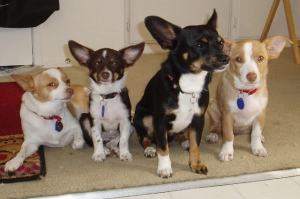

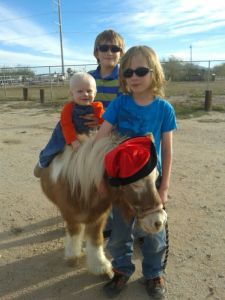
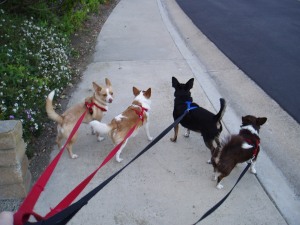
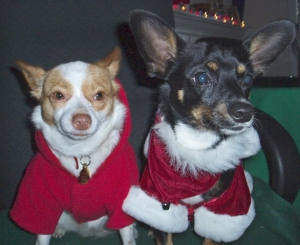
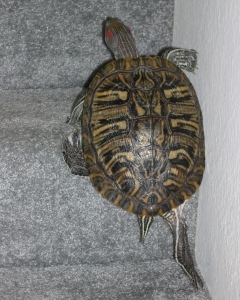
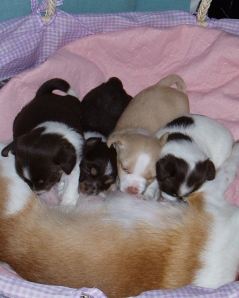
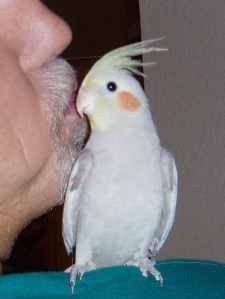
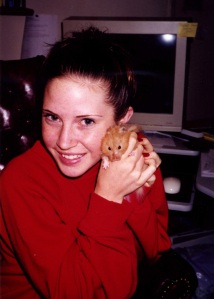
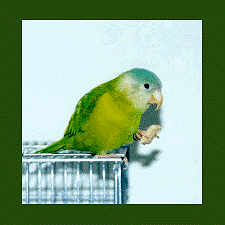
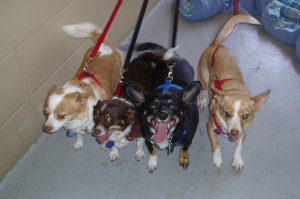
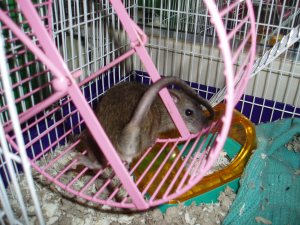
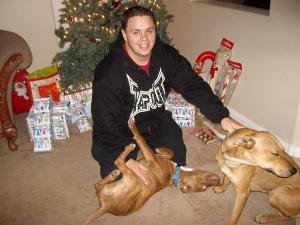
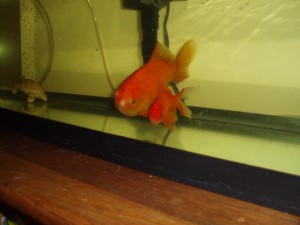
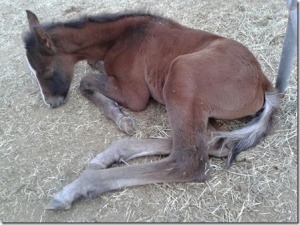
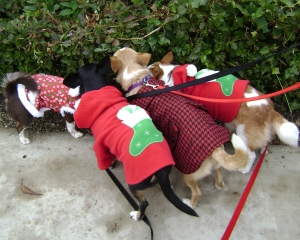
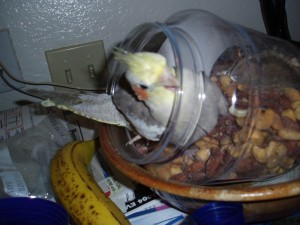
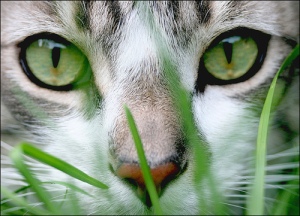
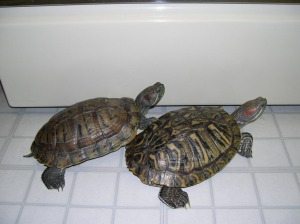
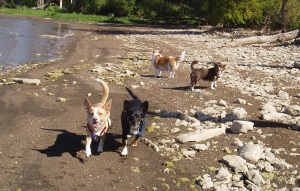
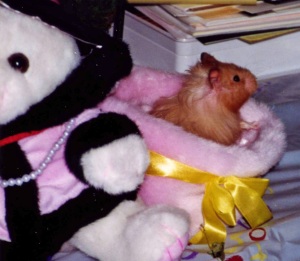
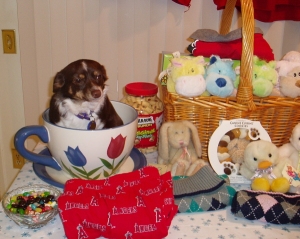
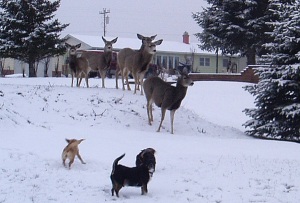
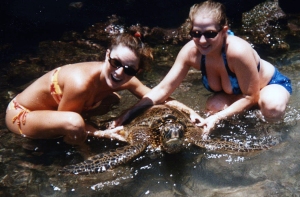

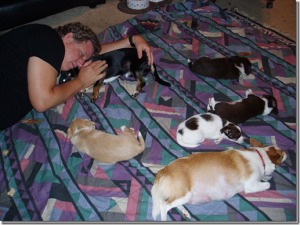
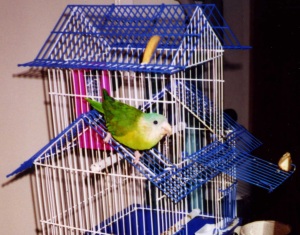
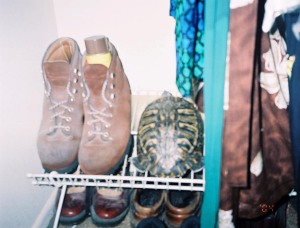
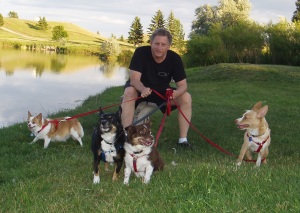
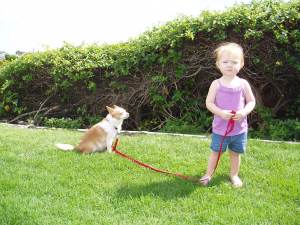
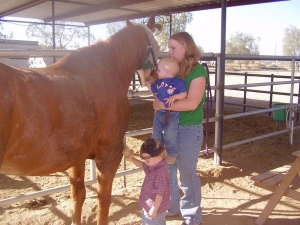
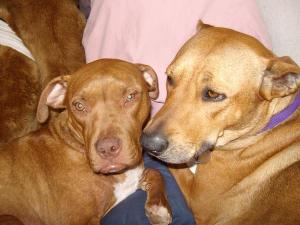
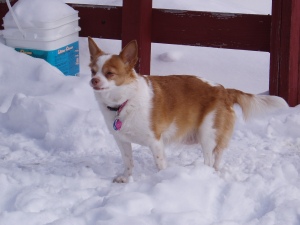

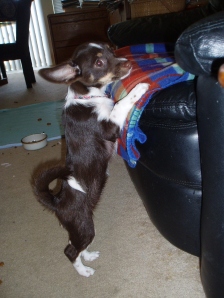

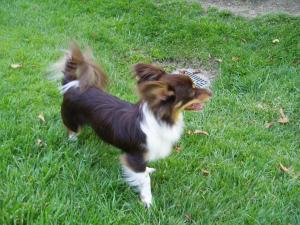
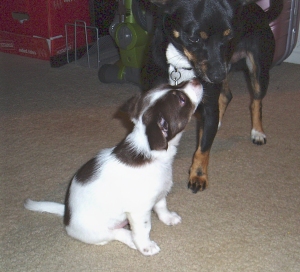

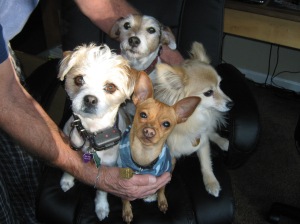
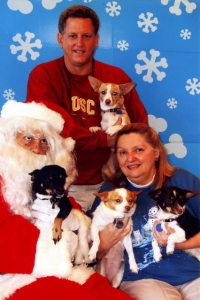

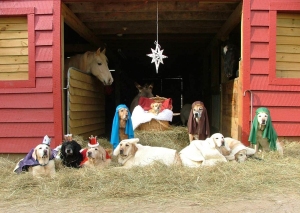

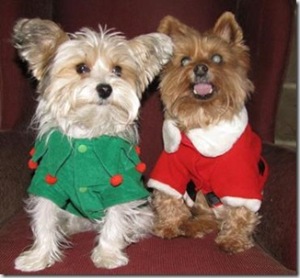
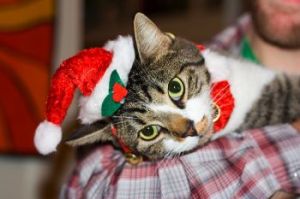

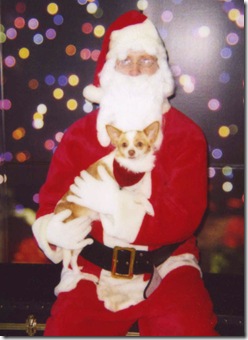
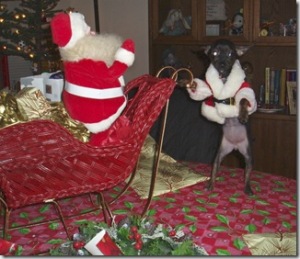


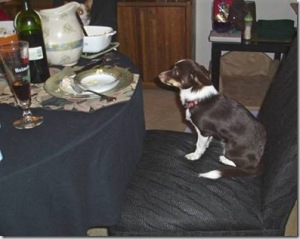
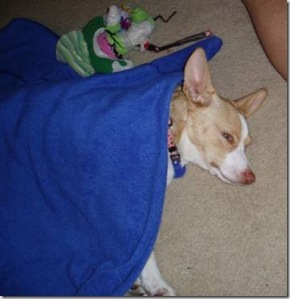
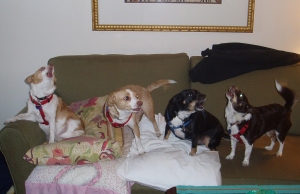

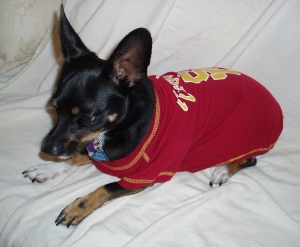
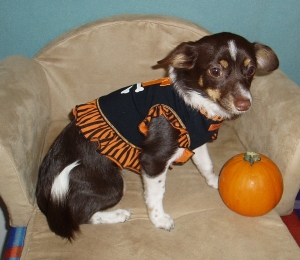
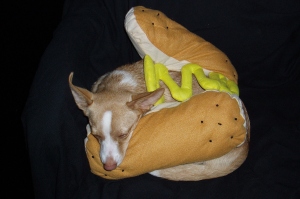
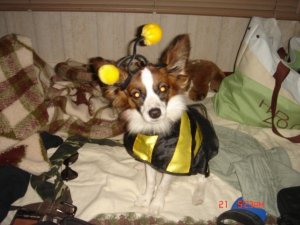

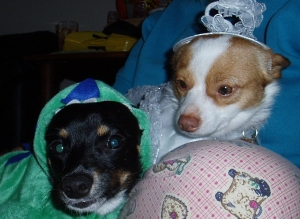
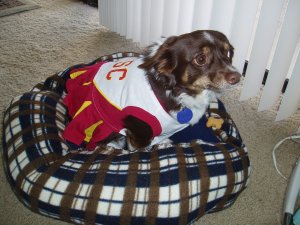

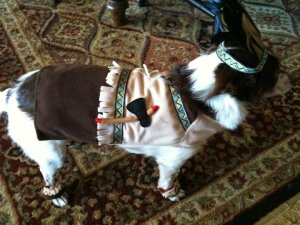
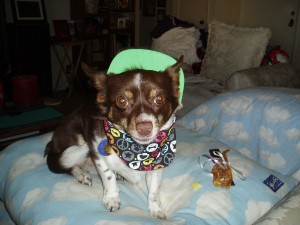
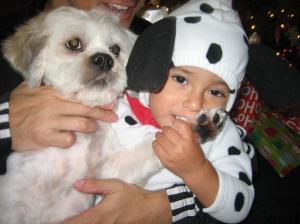




You must be logged in to post a comment.